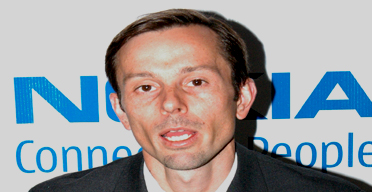NAIROBI, July 28 – When he learnt that he would be posted to Kenya as Nokia General Manager for East and Sub-Saharan Africa, Gerald Brandjes was an excited man. His picture of Kenya was that of a hub with huge potential and great opportunities for his product.
So, when he landed in Nairobi on January 1 only to find a country that was beginning to flare up, that picture was shattered in his mind.
Seven months down the line, however, Brandjes is happy with the return of peace and is optimistic the future could only be brighter for his company.
He now says he is determined to introduce what he calls the “Nokia Experience” to the East and Sub- Saharan region.
The 35 year old dual national of Netherlands and South Africa is married and a father of two. He had previously worked in the emerging markets of Africa and the Middle East for over a decade.
Brandjes, who admits to love curry, prefers an open-style management.
He reads a lot and likes people who speak their minds but dislikes individuals who do not honor their obligations.
Brandjes opened up to Capital Business.
Q: Describe you career path
A: I served my first managerial position at 24 years old. I have been pretty much involved in the emerging markets within Africa and the Middle East for the last 13 years.
Previously, I worked for another multinational company until two years ago when I joined Nokia.
My first appointment with Nokia was managing the mobile phones business portfolio East and South Africa.
I took up the position of General manger East Africa at the beginning of this year.
Q: How would you describe your management style?
A: I’m open, always willing to discuss. I like people to take initiative and to see me as a human being and not just a manager.
Q: What do you think of Kenya as an operating environment?
A: Exciting! There is huge potential. The country still has a relatively low mobile penetration level. And since it’s the model for East Africa, this means that a lot of the things we do here can be replicated in the region
Q: How do you plan to handle fierce competition in the industry?
A: Competition is part of our everyday life and we have a lot of companies out there fighting for the same market. At least Nokia has some competitive advantage; it has a diverse portfolio. Our big portfolio ensures we meet the needs of all the target markets and segments at their level of need.
Q: What kind of impact would you like to leave once you’re through with your assignment in Kenya?
A: The single biggest impact that I can have is that all the employees in the Nokia office grow to be the next leaders of their generation in this country.
Q: What is your vision for Nokia in the country?
A: We want to achieve a Nokia experience. This means being able to understand our consumers and bring to the market products that add value to their lives and more importantly for us is to bring products that fit each individual’s pocket.




































